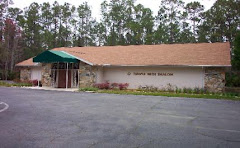

It has been suggested that the dietary laws are designed as a call to holiness. The ability to distinguish between right and wrong, good and evil, pure and defiled, the sacred and the profane, is very important in Judaism. Imposing rules on what you can and cannot eat ingrains that kind of self control, requiring us to learn to control even our most basic, primal instincts.
The laws of kashrut elevate the simple act of eating into a religious ritual. The Jewish dinner table is often compared to the Temple altar in Jerusalem in rabbinic literature. A Jew who observes the laws of kashrut cannot eat a meal without being reminded of the fact that he is a Jew.
There is also the view that the obedience to the laws of kashrut are a necessary precondition for a Jew to be able to reach his utmost spiritual capacity. According to this understanding, the laws are meant to say that one must first have obedience in his base, animalistic sectors of life in order to achieve obedience and spirituality in the more lofty pursuits of Judaism
According to this theory, the practice of kashrut serves as a daily exercise in self-discipline and self-control, strengthening the practitioner's ability to choose other difficult paths. The ability to rationally curb one's most basic appetites can be seen as the prerequisite to living in a civilized society. Also, Jews consider the aspects of kosher slaughter which emphasize and incorporate the need to avoid unnecessary suffering of the animal a reminder to the believer that having the power of life and death or to cause suffering, even to a farm animal born and bred to be eaten, is a serious responsibility rather than a pleasure to be sought after; and that to actually indulge in pleasure in the power to cause suffering, even in so common a practice as hunting, is to damage our own moral sensibilities.
To some degree, the prohibition on combining milk with meat represents a symbolic separation between death, represented by the flesh of a dead animal, and life, represented by the milk required to sustain a newborn creature. The often-quoted humane component to this law is also of symbolic value; the Torah prohibits 'seething the kid (goat, sheep, calf) in its mother's milk', a practice cruel only in concept, which would not be understood as cruelty by either the kid or its mother and would not cause them additional suffering; but which could still potentially inflame a human's taste for ultimate power over those creatures who are weaker. Thus, kashrut prohibits the practice itself, even if the resulting mixture is to be discarded.
Similarly, the prohibition against consuming carnivorous mammals and birds, 'loathsome crawling creatures', and scavengers, as well as the prohibition against consuming sick or diseased animals, would seem to rely, at least in part, on their perceived symbolic character.
Recipes are continuously being accepted in the Temple Beth Shalom office sent to the attention of Nancy Ryone! Help on this project will promote a mitzvah-Kashrut and help Beth Shalom continue to move forward as a vibrant leader of the Flagler County Jewish Community!

















